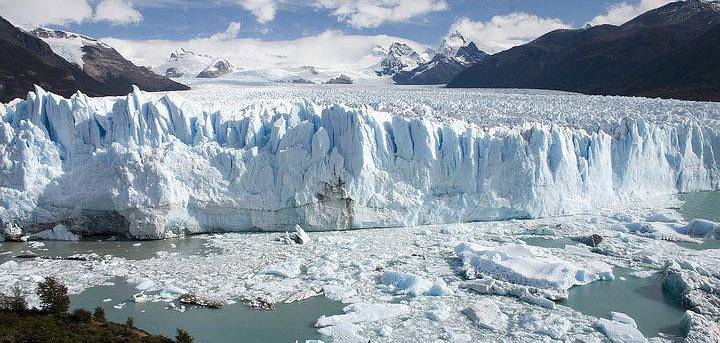
The recent collapse of a 1,100 km2 ice shelf in Antarctica came at a time of record high temperatures. For experts, this event is the symptom of a planet in climate crisis.
The Conger Ice Shelf, which broke off the eastern side of Antarctica in March, is the latest victim of rising temperatures at Earth's poles. Experts say that as polar regions warm, more ice is likely to melt, potentially pushing sea levels up and flooding coastal communities.
“The current concentration of greenhouse gases is higher than at any time in human history. This is a very worrying signal,” said Pascal Peduzzi, Director of GRID-Geneva, Science Division of the United Nations Environment Program (UNEP).
The temperature at the Vostok weather station in central Antarctica in March is normally -53°C. But between March 16 and 20, around the time the ice shelf would have collapsed, the temperature was on average 35°C warmer, reaching an Antarctic mild -18°C on March 17 . The heat wave is part of a global warming trend.
Satellite imagery, dating back five decades, shows sea ice at both poles is receding. On February 21, 2022, Antarctic sea ice, which until recently was stable, reached its minimum since measurements began in 1979.
The situation is much more dramatic on the other side of the planet. Forty years ago, sea ice in the Arctic was typically three to four meters thick. Today it is around 1.5 meters, according to a recent UNEP report, the Foresight Brief . Thinner ice and more open water lead to increased absorption of sunlight and increased melting in summer. Since 1979 , approximately 50% of summer sea ice cover has been lost .
“There has been a significant loss of sea ice, especially over the past 20 years,” said Tore Furevik, director of the Nansen Environment and Remote Sensing Center and co-author of the Foresights Brief. “The loss of sea ice indicates an increasingly warming climate that is out of balance, the only way to stop this trend is to reduce greenhouse gas emissions. »
The melting of sea ice leads to changes in the marine ecosystem, ocean circulation and weather events. In the Arctic and Antarctic, warmer seawater is contributing to the melting of ice caps. Although the melting of the Arctic will not result in a significant rise in sea level, since the ice is already in the water, the melting of the ice of Greenland or Antarctica will when it is on earth.
To halt the melting of sea ice and ice caps, it is essential to mitigate climate change and maintain temperature increases in line with the Paris Agreement . Under the pact, member states pledged to limit global warming to well below 2°C, and preferably 1.5°C, above pre-industrial levels. If the world meets its current climate commitments, the planet will warm by at least another 2.7C, warns UNEP's ' Emissions Gap' report by the end of the century , while the latest report from the Intergovernmental Panel on Climate Change (IPCC) indicates that the median global warming will be 3.2°C by 2100 .
“We need to take the climate crisis more seriously,” said Peduzzi, “We have less than eight years to halve our emissions. This will not happen without a major reconfiguration of all major sectors. »
UNEP has proposed what it calls a six-sector solution to the climate crisis . It focuses on reducing greenhouse gas emissions in half a dozen industries: energy, industry, agriculture and food, forests and land use, transport, buildings and cities. The report outlines how these six sectors can reduce more than 30 Gt of emissions and help keep temperatures rising in line with the Paris Agreement.
The United Nations has also released the ActNow campaign , which guides people on the individual choices they can make to limit global warming and reduce climate change.
In March 2022, UNEP launched an updated version of its data, information and knowledge platform called World Environment Situation Room . There is a dedicated climate change module, which includes daily updated graphs of the extent of Arctic and Antarctic sea ice. The web page also highlights temperature anomalies and contains a large amount of data explaining and monitoring climate change.
This month, UN Secretary-General António Guterres said “ we are on a fast track to climate catastrophe”.
Peduzzi finds that there is apathy around climate change, as people often don't realize the massive impact each degree of warming can have on the planet. He said: “At 1.5C sea level rise is contained to 48cm. At 3°C, sea levels would rise by seven meters and marine ecosystems could collapse. At 4°C, experts do not see how adaptation would be possible. »
Source
- UNEP (United Nations Environment Programme)
Posted on 2022-04-13 10:44








Comments